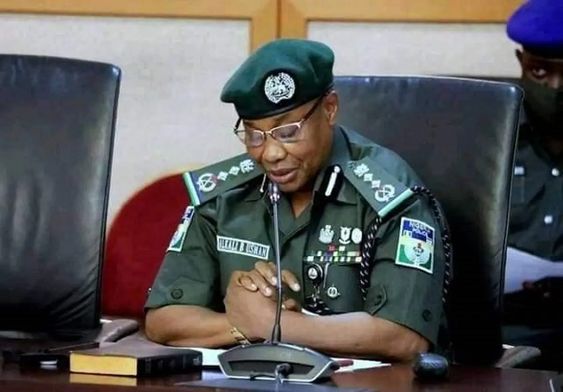Headlines
IGP Bans Amotekun And Orders Mobility Restriction On Election Day

Nigeria’s police head told the populace that all required security measures had been put in place to guarantee their freedom of expression.
The Inspector-General of Police (IGP), Usman Baba, has directed that all vehicular movement on roads, canals, and other kinds of transportation would be prohibited on election day from 12 am to 6 pm. The gubernatorial and state assembly elections are scheduled on March 18.
The Independent National Election Commission (INEC), electoral observers, accredited journalists and observers, as well as first responders, are prohibited from providing vital services.
The Federal Capital Territory is not included in this instruction since there is no election taking place there, according to Force Spokesperson Muyiwa Adejobi.
The IGP further reiterates that during the election, no security assistants or escorts may accompany VIPs or politicians to polling places or centres for election collation.
The IGP also prohibited privately held security companies and state-established security companies from managing election security. The Benue State Community Volunteer Guards, the Amotekun Corps, and Ebubeagu are just a few examples of state-owned security organisations.
READ ALSO: Those who have rushed to celebrate Tinubu have not seen the proof – Peterside
The IGP advised everyone to follow the law both during and after the elections while assuring Nigerians that all essential security measures have been put in place to guarantee they may exercise their right to vote without interference.
The presidential and National Assembly elections on February 25 were marked by significant violence, particularly in states like Lagos, Kano, Rivers, and Bayelsa, among others. Snatching ballot boxes, intimidating voters, and harassing voters were commonplace.
Nigerians will go to the polls once more on Saturday, March 18, 2023 to elect a new set of governors and state assembly members, and the battlegrounds have shifted to states as a result of the conduct of the presidential and legislative elections and the attendant legal tussles following the outcome of the results announced by Nigeria’s electoral body.
Notably, candidates from 18 political parties ran for office in the elections that were scheduled to take place in 28 of the Federation’s 36 states. This is because eight states’ gubernatorial elections—Anambra, Bayelsa, Edo, Ekiti, Imo, Kogi, Osun, and Ondo—are held off-year due to legal disputes and court rulings that have curtailed the country’s practise of holding regular governorship elections.
Nonetheless, there will be elections for state legislators in each of the 36 member states of the Federation. For the 993 seats in the State Houses of Assembly, there are already thousands of contenders. According to figures from INEC, this information.
In alphabetical order, the 28 states where governorship elections will hold on March 18, 2023 are: Abia, Adamawa, Akwa Ibom, Bauchi, Benue, Borno, Cross River, Delta, Ebonyi, Enugu, Gombe, Jigawa, Kaduna, Kano, Katsina, Kebbi, Kwara, Lagos, Nasarawa, Niger, Ogun, Oyo, Plateau, Rivers, Sokoto, Taraba, Yobe, Zamfara.
